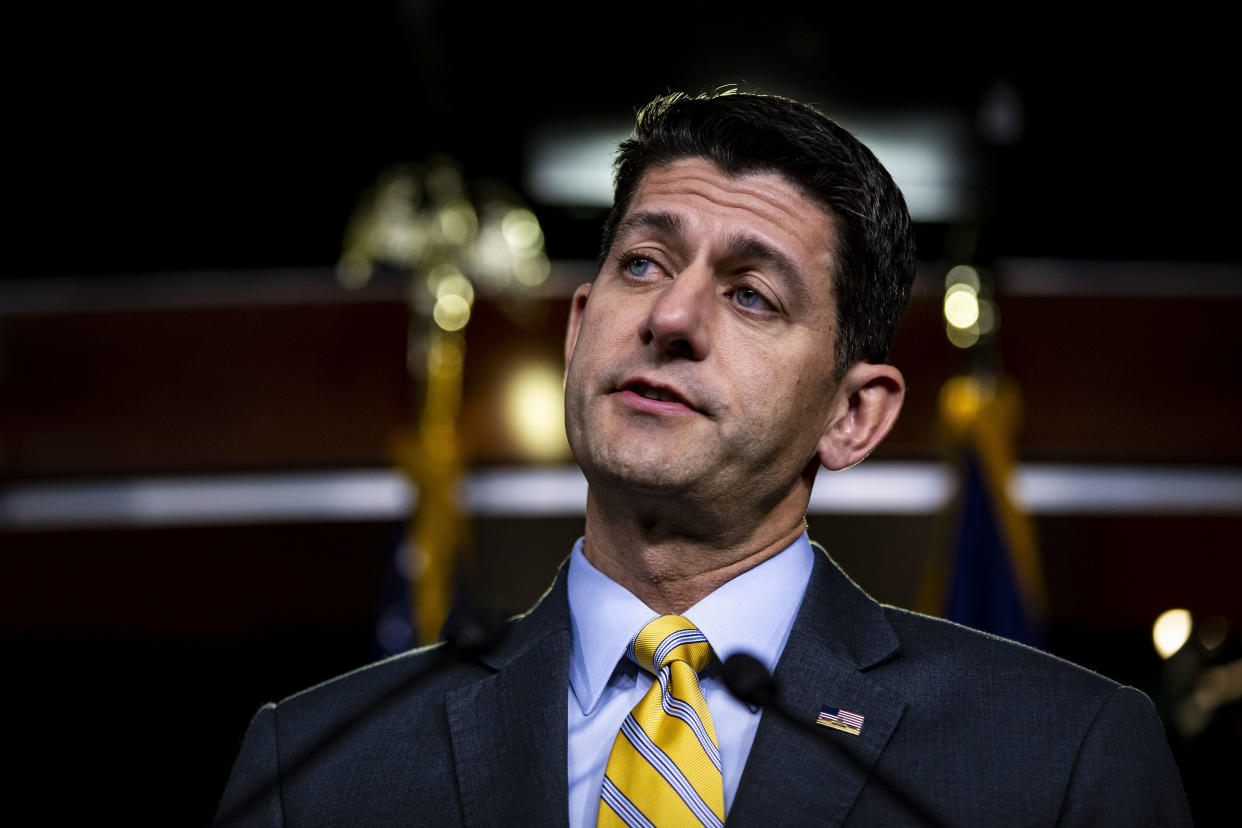House Passes Symbolic Food Stamp Cuts

WASHINGTON ― More poor people would have to get jobs in order to keep food stamp benefits under legislation that Republicans in the U.S. House of Representatives approved Thursday.
After a failed vote more than a month ago, the House reconsidered the legislation, known as the farm bill, on Thursday. It passed 213-211 with 20 Republicans joining all Democrats in opposition to the legislation, which would fund farm programs for five years and impose tougher work requirements on people who receive food stamps.
Conservatives sunk the farm bill in May over concerns that GOP leaders would jam through an unrelated immigration bill. House Freedom Caucus members wanted to hold onto the must-pass farm legislation as a bargaining chip on immigration. But with conservatives finally getting a vote on a conservative immigration bill, which went down on Thursday, more Republicans were finally willing to support the farm bill.
The legislation stands almost no chance of getting through the Senate, meaning Republican dreams of stricter work requirements will probably go unrealized for at least the foreseeable future.
The Supplemental Nutrition Assistance Program helps 40 million Americans buy food every month, and Republicans say the benefits discourage some people from taking available jobs.
The program already has work requirements, with the strictest ones for able-bodied adults who are younger than 50 and don’t have dependent children. The GOP House bill would expand those rules to people in their 50s and parents of minor children older than 6.
More than a million people would lose out on benefits due to the provision over 10 years, according to the Congressional Budget Office, which has projected that improving economic conditions on their own will shrink enrollment by 8 million in that time period.
Slashing safety net programs has been a career goal for House Speaker Paul Ryan (R-Wis.), who has suggested that alleviating poor people’s material suffering impoverishes their souls. He said Thursday the bill would shove more people into jobs.
“This is a perfect time to pull people out of poverty, into the workforce, onto the ladder of opportunity,” Ryan said.
Though the food stamp changes are part of a broader farm bill that includes subsidies for agriculture businesses, SNAP benefits account for most of the bill’s cost.
The Senate has its own farm bill, which was written in a bipartisan fashion and doesn’t include food stamp cuts. Ultimately the two chambers will have to agree on a final bill, meaning House Republicans’ goal of cutting food stamps this year has always been a long shot.
Republicans wrote the food stamp provisions without input from Rep. Collin Peterson (Minn.), the top Democrat on the House Agriculture Committee. Peterson said in a statement Thursday that he looked forward to collaborating with senators on their version of the bill.
“The Senate’s version isn’t perfect, but it avoids the hardline partisan approach that House Republicans have taken here today, and if it passes, I look forward to working with conferees to produce a conference report both parties can support, which is the only way to get a farm bill enacted into law,” according to the statement.
Love HuffPost? Become a founding member of HuffPost Plus today.
This article originally appeared on HuffPost.


